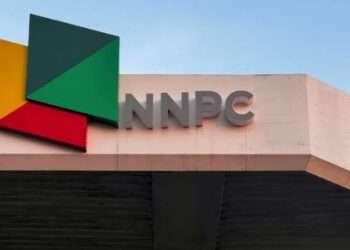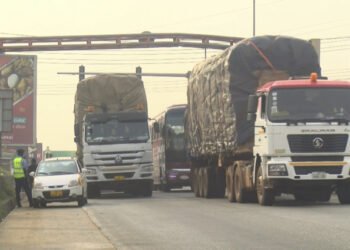The Minister of Works and Housing, Hon. Kojo Oppong Nkrumah has indicated that the government is late in conducting dredging exercises of drainage systems because the 2023 flood control program had funding challenges.
He noted that the Ministry needs more funding to speed up work in preparation for the rainy season to mitigate against potential challenges that flooding during the rainy season could bring.
He indicated that controlling floods is a bit challenging because sometimes an inordinate sum of water cannot be controlled even with the best drainage systems.
Furthermore, the Minister noted that even with an average level of water, floods can still occur if there is no adequate drainage system to get rid of the water. He indicated that the country has not made enough investment in the kind of drainage system that gets rid of average and above-average volumes of water.
“World Bank assisted us with US$ 200 million to start work on the Odo under the GARID program. That work is behind schedule because of several factors. We need to speed up the work on the GARID project; we also need about US$ 150 million in additional funding on the GARID project which is in Parliament, we couldn’t pass it because the Speaker adjourned the house”.
Kojo Oppong Nkrumah
He argued that work on the Odo and other basins in the country needs to be sped up to ensure that when water reaches above-average volume it will have channels that can drain the water to prevent flooding.
Moreover, Mr. Nkrumah noted that some constructed channels and basins do not achieve their aim as dumping of refuse in these channels makes it impossible for water to pass through them. He stated that the government always has to pay extra to make sure these channels are de-silted to reduce the potential of a flood.
He disclosed that the responsibility of de-silting water channels will be given to the Local Assemblies to take over. He however indicated that the Local Assembly also has funding issues which should be resolved first before any more responsibility is added to their work.
Affordable Housing In Ghana
Remarking on affordable housing, Mr. Kojo Nkrumah noted that the housing deficit in the country is currently between 1.8 and 1.9 million. He indicated that the government has the responsibility to provide leadership in solving the housing deficit challenges.
He suggested that the government must have a framework that makes it relatively easy for the deficit in housing to be reduced. He however noted that the architecture used by governments over the years to resolve house deficit has not been robust enough to curb the challenges.
“Here at the Housing Ministry, we have only a staff of seven in the Housing Directorate to tackle a housing deficit of 1.8-1.9 million people. You will agree with me, it’s a bit on the low side. It speaks to the kind of architecture that we are using because the government has not develop a framework that makes it easy for the private sector to come on board”.
Kojo Oppong Nkrumah
More so, Mr. Nkrumah indicated that he had enlisted the help of the Office of the Head of Civil Service to provide the Ministry with expert land economists, surveyors, and architects among others to make the Housing Directorate a robust entity.
He noted that to enhance affordable housing the Ministry now has five Affordable Housing departments to speed up the process of putting up houses for the general public.
He stated that to reduce the burden on the affordable housing project, the Ministry introduced the District Housing Department which focuses on developing houses at the district level.
Conclusively, he indicated that the government will bring on board the private sector to help with developing housing to curb the housing challenge in Ghana. He noted that the government will provide incentives that will encourage partnerships between the private sector and the government.
READ MORE: KiDi Considers Endorsing A Political Party



















